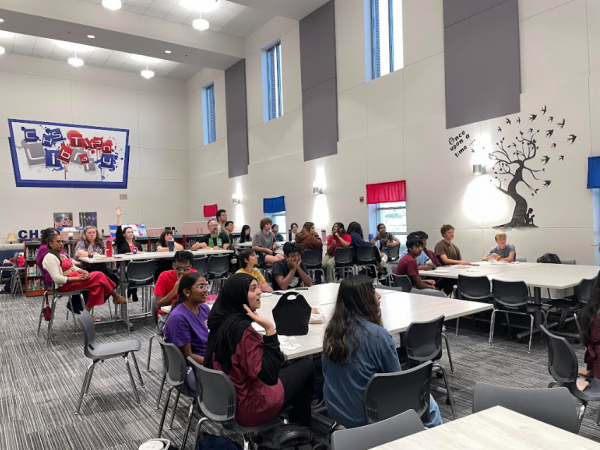A Guide to College Applications
As arguably one of the strangest school years in modern history starts to kick into full swing, Centennial High School seniors are setting off on one of the most trying journeys of their young lives: the college application process. Now, while it might look like a daunting and impossible task at first, I’m here to tell you that it doesn’t have to be nearly as hard as it seems. Welcome to your guide to the college application process.
Fortunately for the thousands of students applying to colleges nationwide, the first step to completing your application is fairly simple. Each applicant must start by deciding which application portal their colleges of choice require. For students at Centennial, the most frequently used applications are the Common Application, the Coalition Application, and Apply Texas- all of which allow you to apply to multiple schools at once through one centralized portal. While Apply Texas is exclusively for students applying to Texas schools, both the Common Application and the Coalition Application allow for students to choose from hundreds of colleges all across the United States with a generous application limit of 20 per portal.
With the selection of an application portal comes the creation of the actual application itself. Most colleges will ask for the basics: your transcript, resume, letters of recommendation, test scores, a personal statement, and supplemental essays. At first, that can sound awfully overwhelming-especially with many students lacking test scores this year. Fortunately, over half of that list requires little to no work from you as a student and the other half can be easily done with some self-discipline and time management. Because of the inconsistency and chaos regarding the current COVID-19 pandemic, the vast majority of colleges have adopted a “test-optional” policy wherein students may choose on their own to provide scores if possible, or to opt-out due to an inability to test or to withhold weaker scores. Other than that minor complication, gathering your transcript, creating a resume, and obtaining letters of recommendation are a walk in the park with the largest difficulty being communication, something that can be easily coordinated with a sincere email or a conference call. Now, to introduce the infamous college essay.
Your personal statement is essentially the body of your application. This is the essay that you will be submitting to every college as the most revealing factor of who you are, what you stand for, how you’ve grown, and what makes you stand out from other applicants. Writing your personal statement can be tackled in 3 easy steps: brainstorming topics, drafting an outline, and revising until you’ve fine-tuned the perfect essay. Supplemental essays are an echo of this very process. These essays, typically far shorter and with lower word counts, are usually reserved for questions pertaining to the specific institution and its community or for you to further express some of your achievements, goals, adversities, and hopes.
The biggest conflict prospective students often face is setting aside time to dedicate to the draining process and finding the motivation to continue it once it’s begun. Like in most cases, delegating a few hours a week to focus on college applications in a calendar or a planner of some sort is a healthy way to ensure you’re working at a consistent pace and are able to meet any deadlines long before they can sneak up on you. Additionally, making the process enjoyable is key to success. This is where perspective comes into play. If you treat it like a chore, then it will become a hassle; if you treat it as an opportunity to explore your options and get to know yourself better through reflection and introspective thinking, it will become another chance for development and productive self-care.
Best of luck, Titans.

Hi everyone, my name is Sofia and I am a senior at Centennial! I am the Editor-In-Chief of Newspaper this year and additionally serve as Centennial's Senior...







